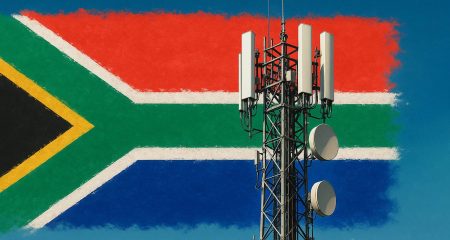
The time has come to reduce significantly the roaming fees that networks charge in the Southern African Development Community (SADC), says an international body.
The SADC member states include South Africa, Botswana, Namibia, Zimbabwe, Lesotho, Angola, the Democratic Republic of the Congo (DRC), Madagascar, Malawi, Mauritius, Mozambique, Seychelles, Tanzania and Zambia.
“I wouldn’t say abandon, but we should reduce them [roaming fees] dramatically,” Mortimer Hope, GSMA director for Africa, said on the sidelines of the World Economic Forum meeting in Cape Town.
Roaming fees represent a big chunk of revenue for mobile operators, says a regulatory impact assessment study on SADC Home and Away roaming.
“Roaming represents sizable revenue streams for a number of SADC operators. The islands of Mauritius and the Seychelles have significant tourist trade from Europe and Asia, and their mobile operators rely heavily on roaming as a source of foreign exchange (forex),” says the report.
But Hope suggested that the economic and societal integration of the region implied that high roaming fees are becoming increasingly harder to justify.
“We’re looking at the SADC region and we’re looking at economic integration. There must be free movement of people and services.”
In Malawi in November 2014, ministers in the SADC region agreed to work toward a reduction in roaming fees.
Busayi Juyana Mlambo, who is the deputy minister of ICT, postal and courier services of Zimbabwe and SADC chair, argued that “citizens of the region will start reaping tangible benefits of affordable roaming rates within SADC in 2015”.
But movement has been slow despite apparent political will to achieve this end.
“While post-paid roaming is relatively well established in SADC, prepaid roaming in the region continues to be hampered by technical and market challenges, including difficulty in establishing roaming partners, high levels of testing complexity and high upfront costs,” says the Home and Away report.
Hope said that the removal of tariffs should be preceded by steps to ensure that operators didn’t face a sudden drop in revenue.
“We need to treat the region as a single economic entity and that means, eventually, the reduction or removal of roaming charges, but there should be some steps along the way.”
SADC ministers approved a three year glide path to reduce roaming rates that was meant to be implemented by January 2015.
Operators in the region have also not helped matters on roaming.
“Less than three quarters (73%) of operators interviewed as part of the study offered any voice roaming to prepaid subscribers and only a couple of those offered prepaid roaming in more than a couple of countries,” the Home and Away report found.
Hope said that the GSMA supported the three year glide path, but urged regulators to address wholesale as well as retail fees.
“When you address retail fees, you also need to address wholesale fees because you don’t want margins squeezed.” — Fin24




